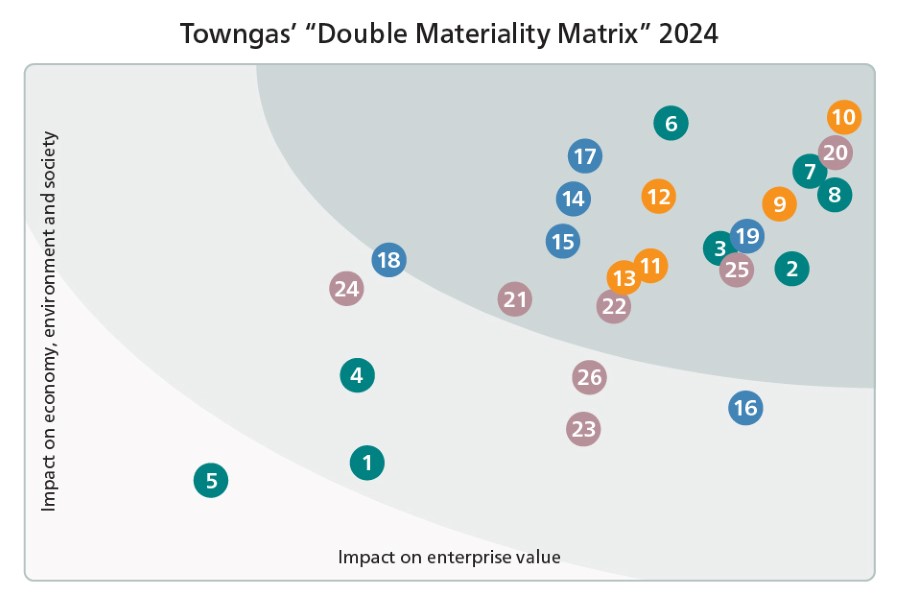
Beyond continuously strengthening relationships with stakeholders and creating long-term value for them, we also engage through diverse communication channels to gain a deeper understanding of their needs and expectations. This allow us to identify key issues requiring the Group's focus, and take proactive steps to collaborate with stakeholders in advancing sustainable development.
Social, economic, and environmental trends are closely monitored, with regular evaluations of material sustainability issues incorporated into the Group’s risk management framework. This vigilance empowers us to adapt policies effectively in response to challenges. This year, we engaged with internal and external stakeholders using various approaches, including questionnaire surveys and focus group interviews. Employing a double materiality assessment framework, we analysed how our operations impact economic, environmental, social, and governance factors, as well as how these issues correlate with our financial performance. From this assessment, we identified and prioritised material issues accordingly.
The specific steps of the evaluation process materiality were as follows:
1. Identification of Materiality
|
2. Stakeholders Engagement
|
3. Double Materiality Assessment
|
4. Response to Material Issues
|
The “Double Materiality Matrix” displays the relative ranking of 26 material issues based on their impact on enterprise value (X-axis) and their impact on the economy, society, and the environment (Y-axis). Among these, 19 core issues were identified as the most material.

1 Air Emissions
2 Biodiversity and Resource Use*
3 Energy Efficiency*
4 Waste Management
5 Water and Wastewater
6 Climate Adaptation, Resilience and Transition*
7 Low-carbon Business Opportunities and Investment*
8 Greenhouse Gas Emissions*
9 Customer Experience*
10 Supply Security and Reliable Production and Distribution*
11 Innovation*
12 Customer Health and Safety*
13 Responsible Supply Chain Management*
14 Business Integrity and Compliance*
15 Corporate Governance*
16 Data Privacy and Cybersecurity
17 ESG Strategy*
18 Tax*
19 Economic Impact*
20 Energy Affordability*
21 Asset Integrity and Crisis Management*
22 Employee Engagement and Development*
23 Human Rights Management
24 Inclusion and Diversity
25 Occupational Health and Safety*
26 Community Relations
* Indicates issues with high materiality.